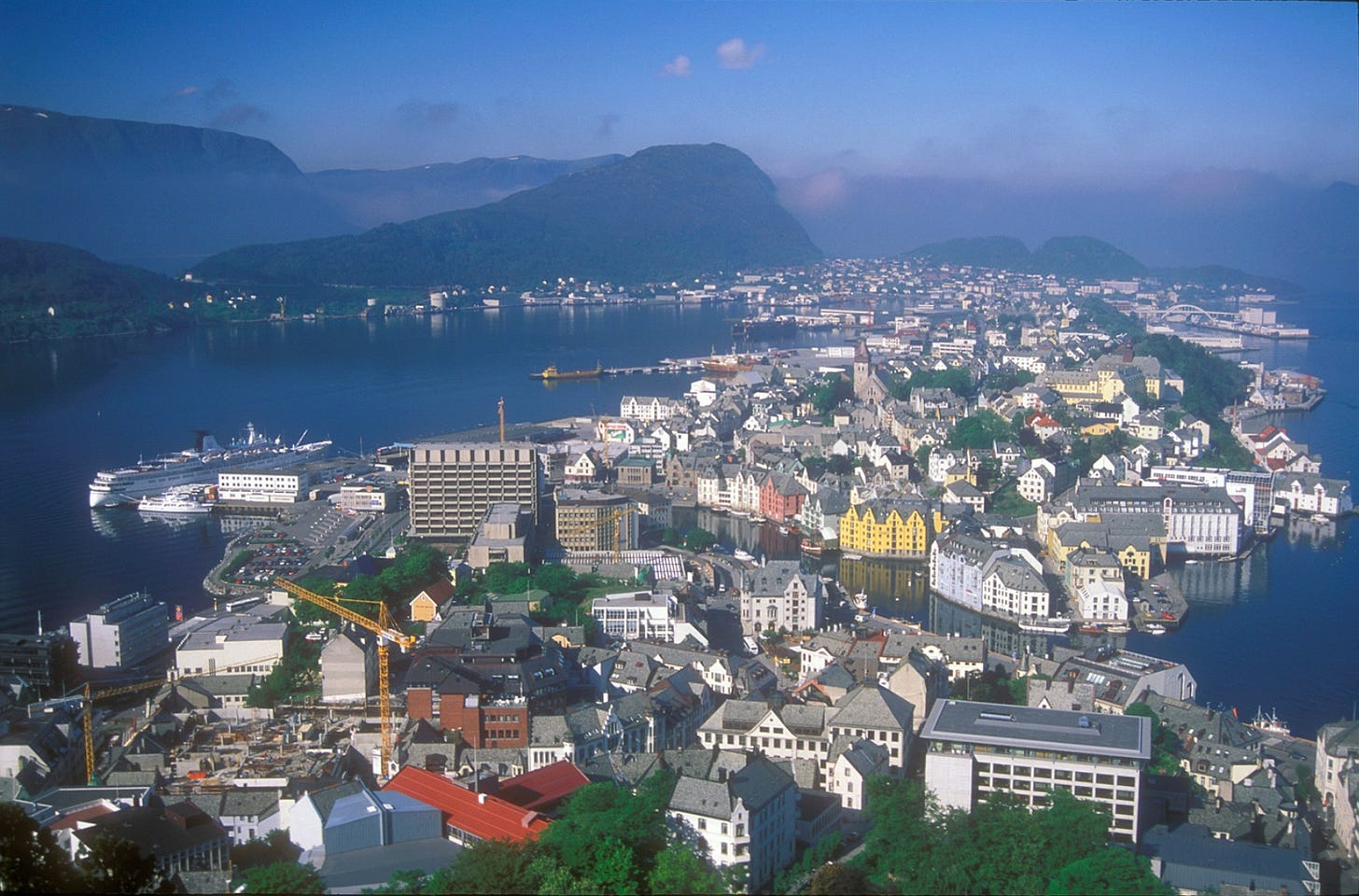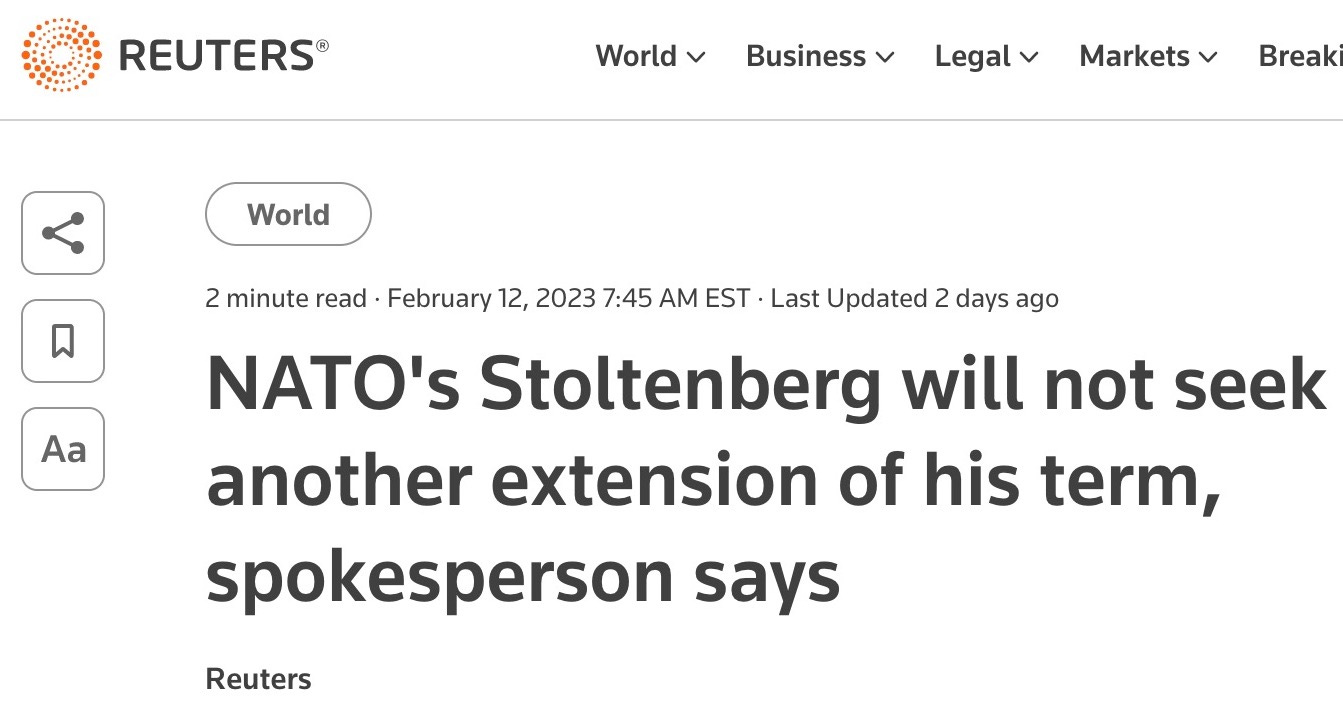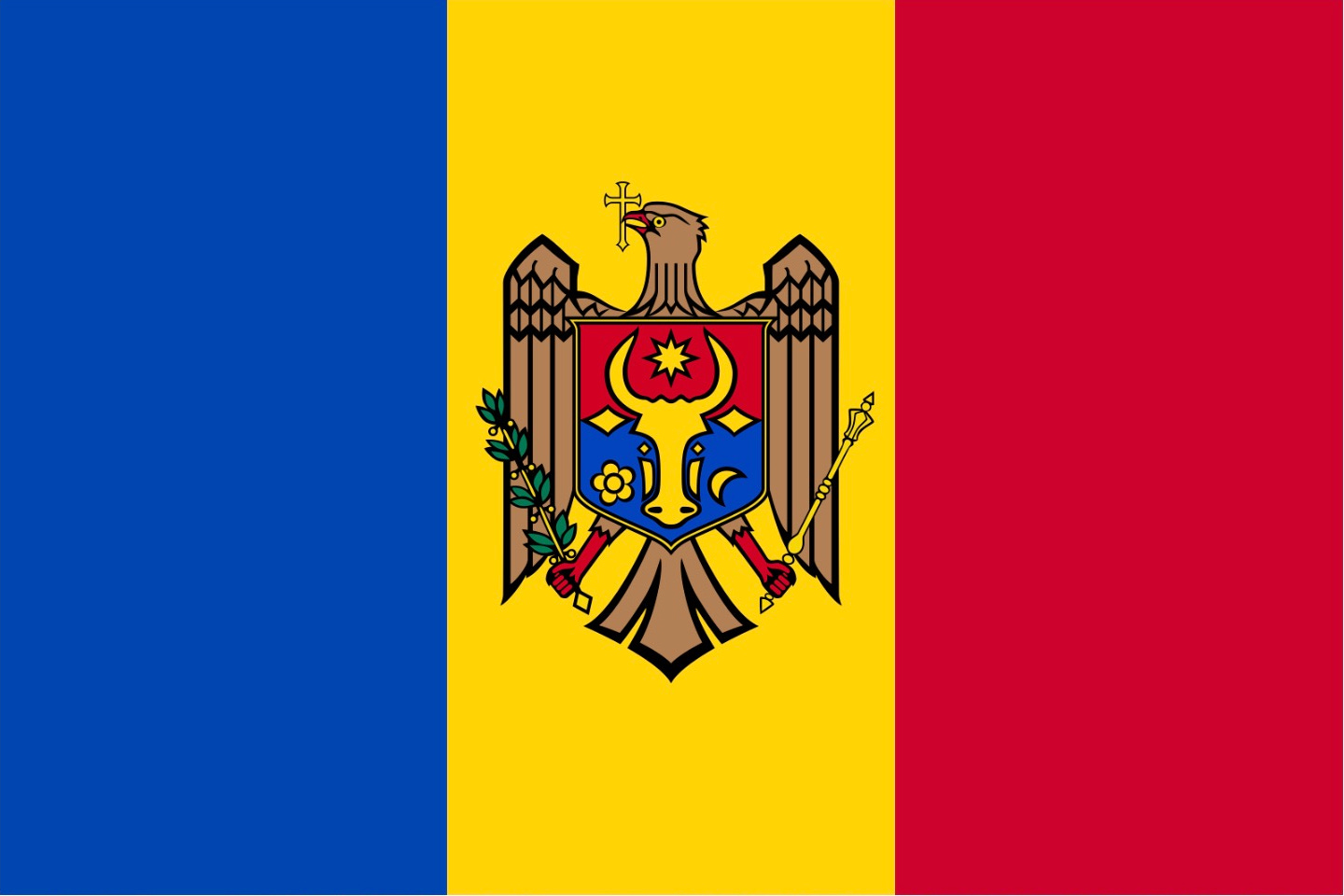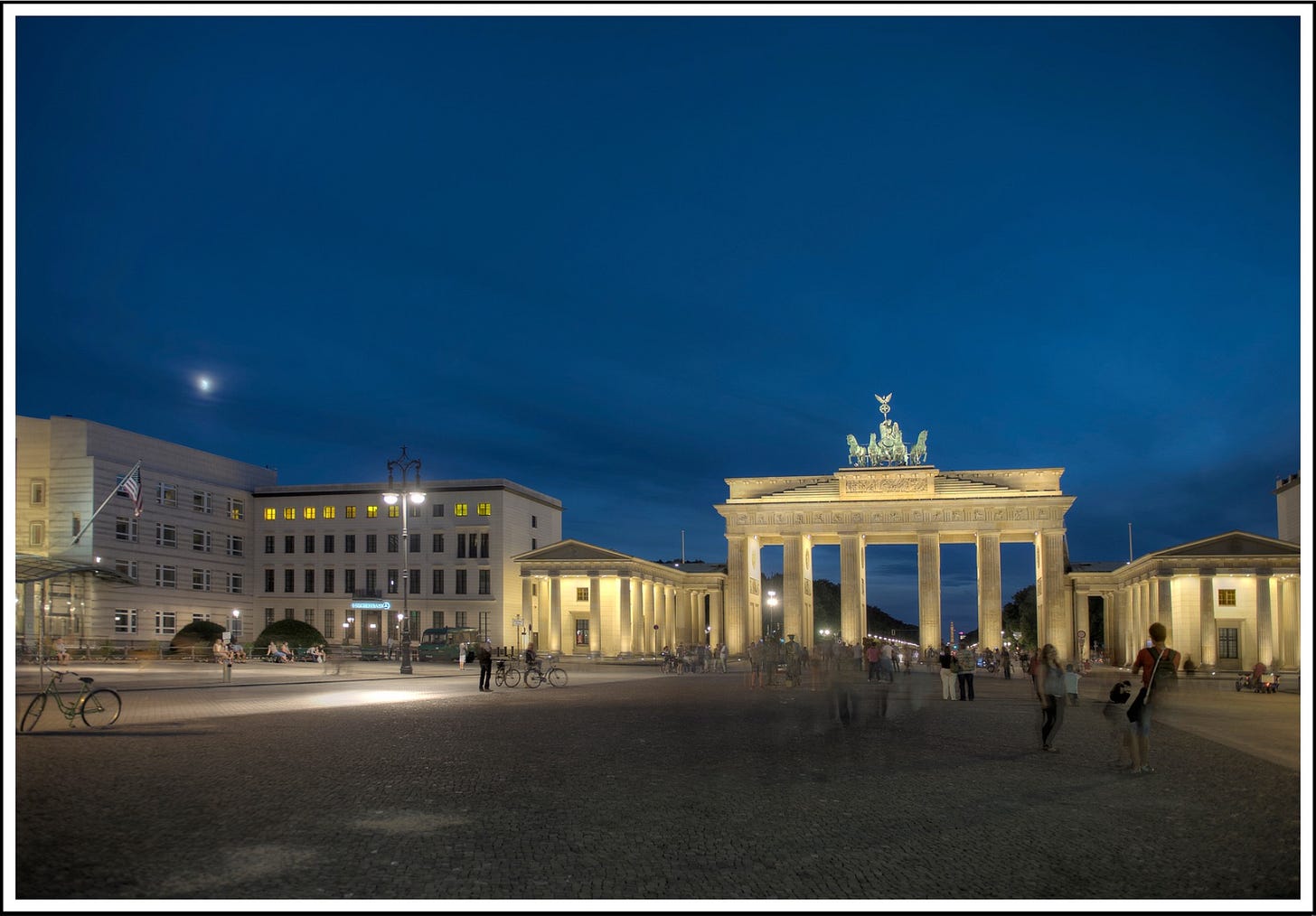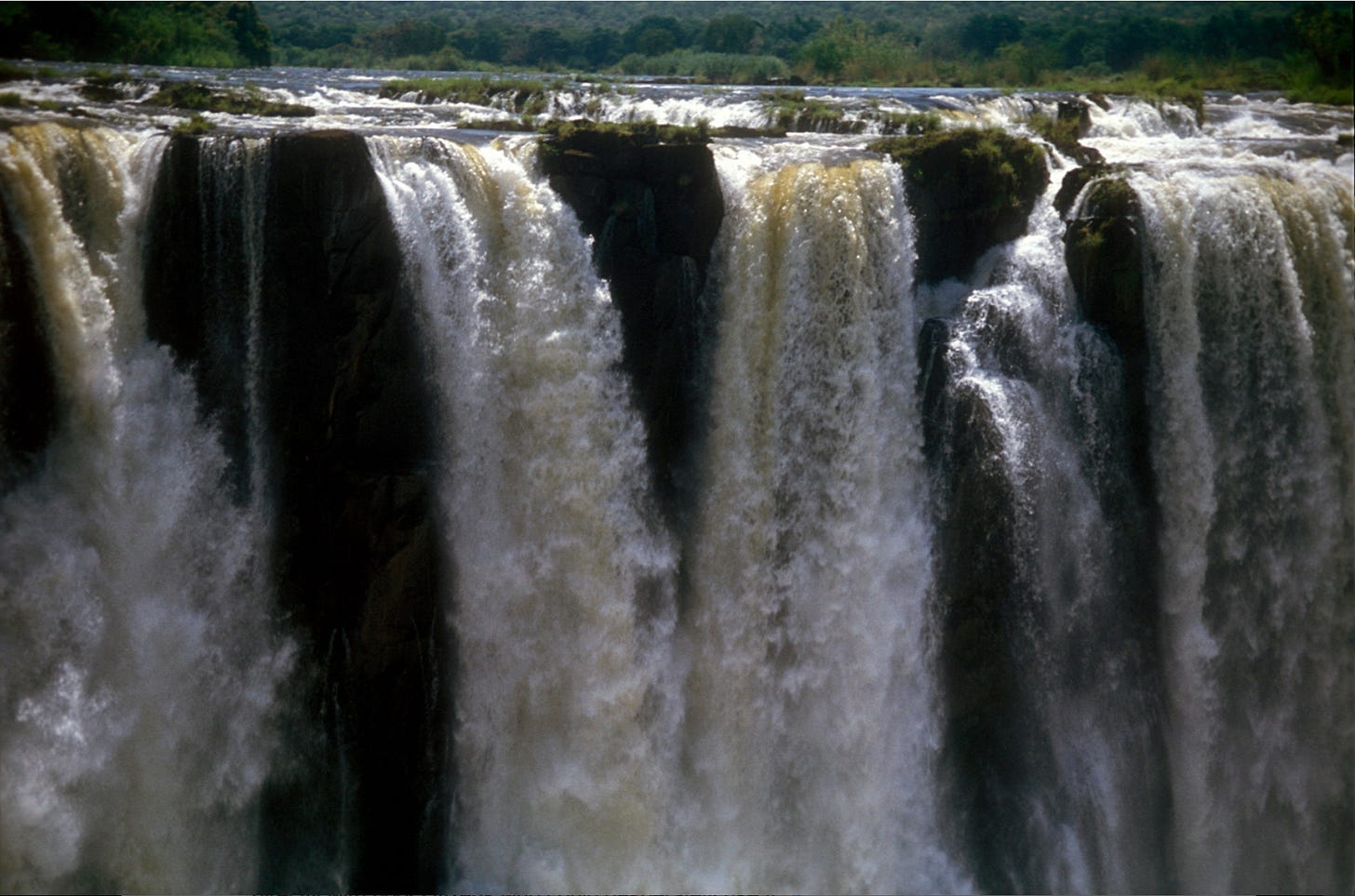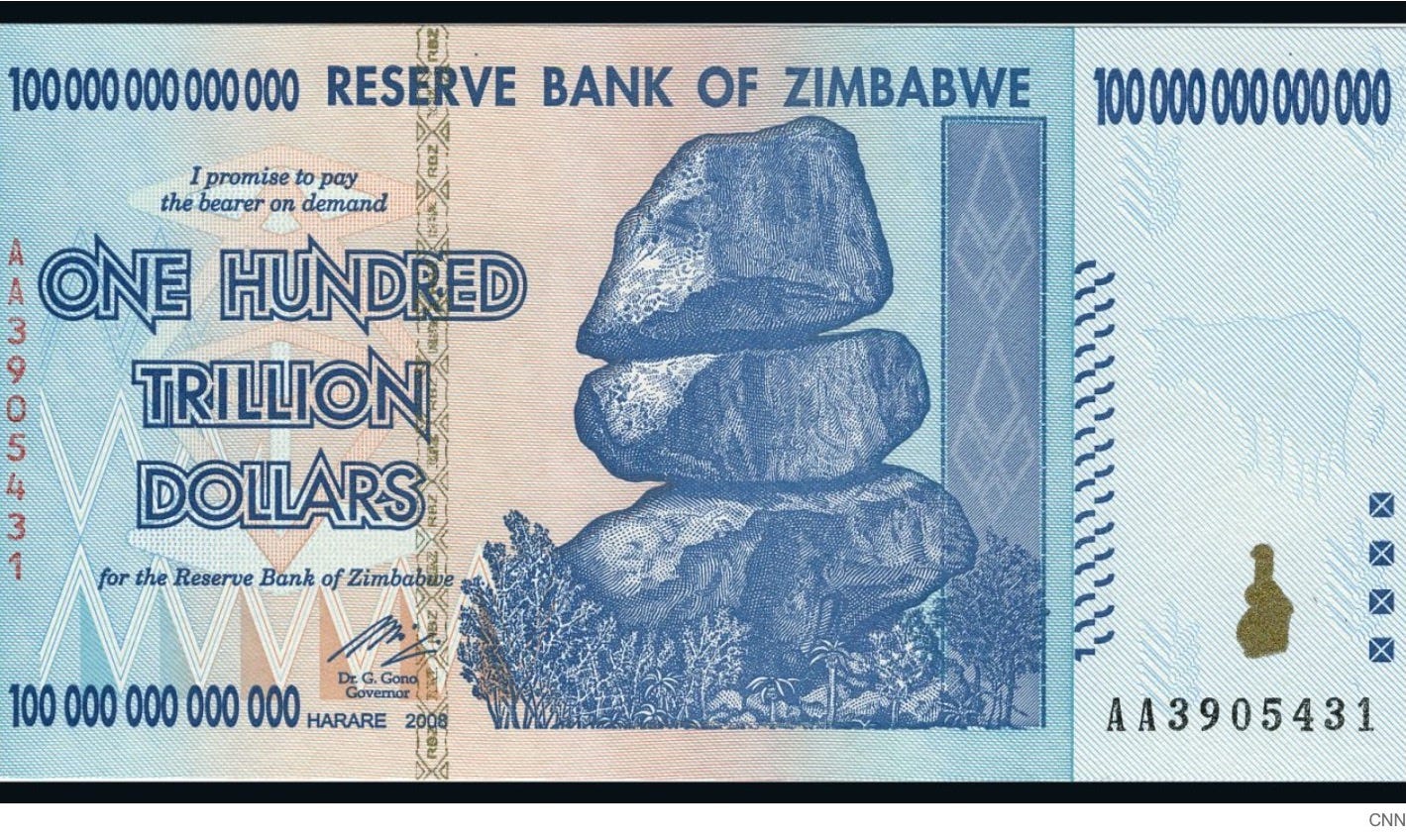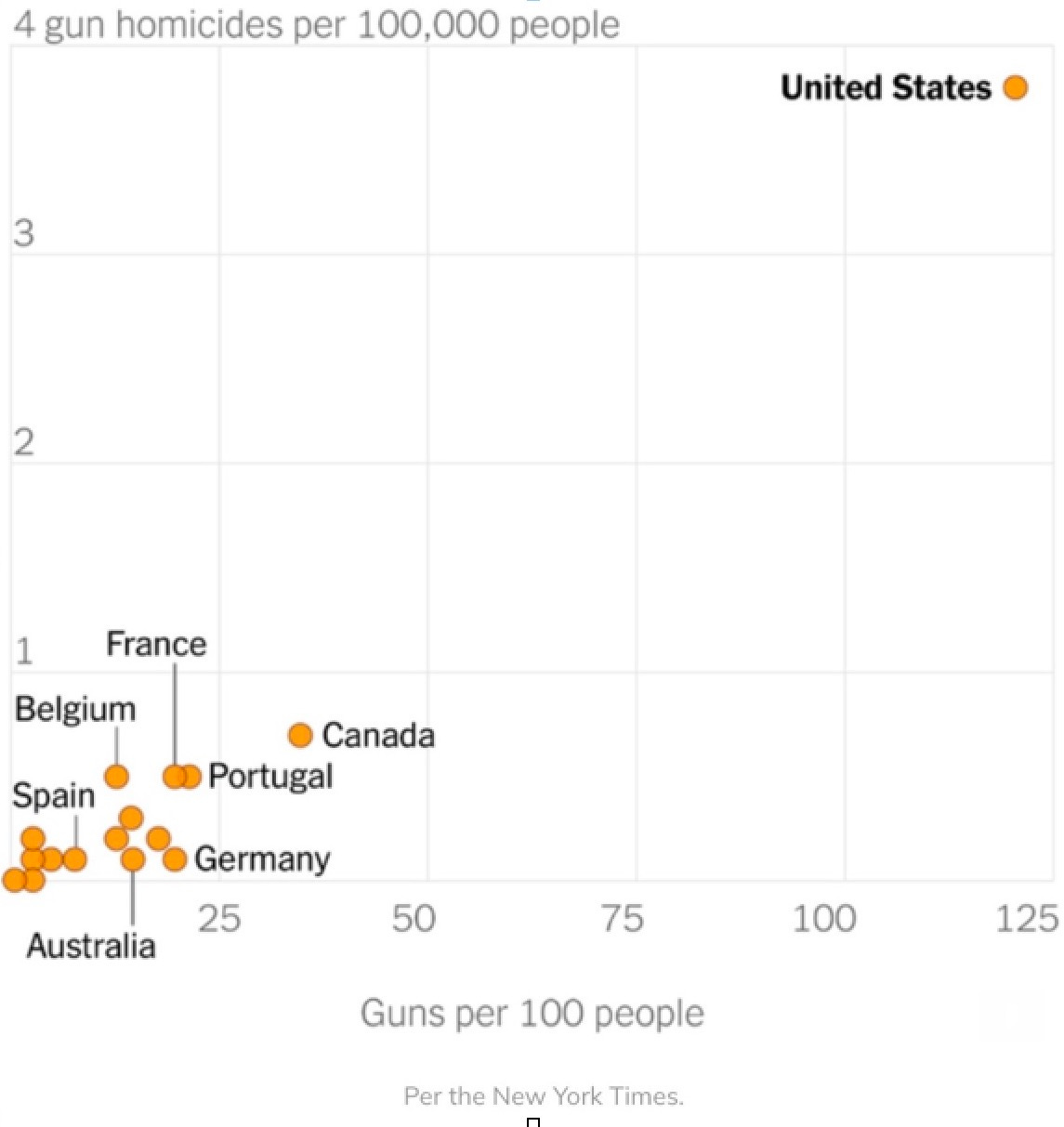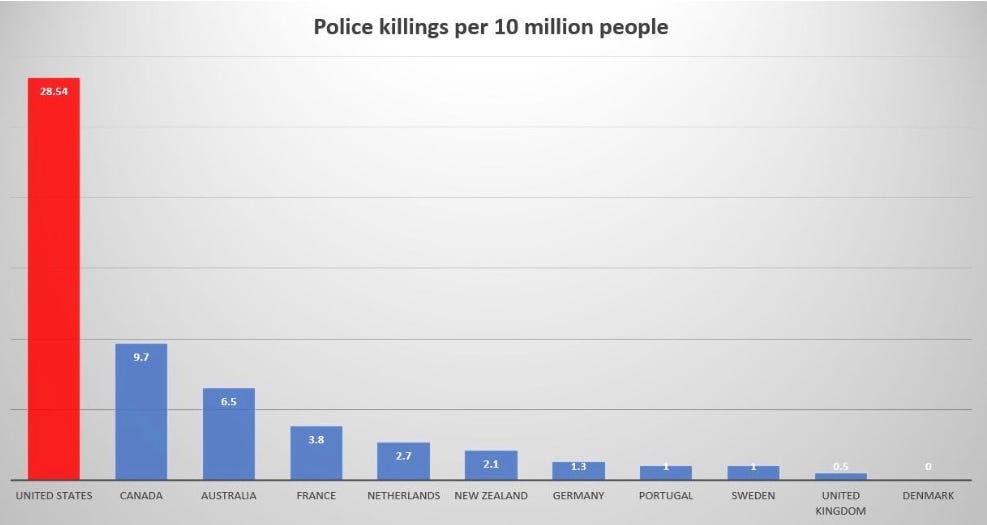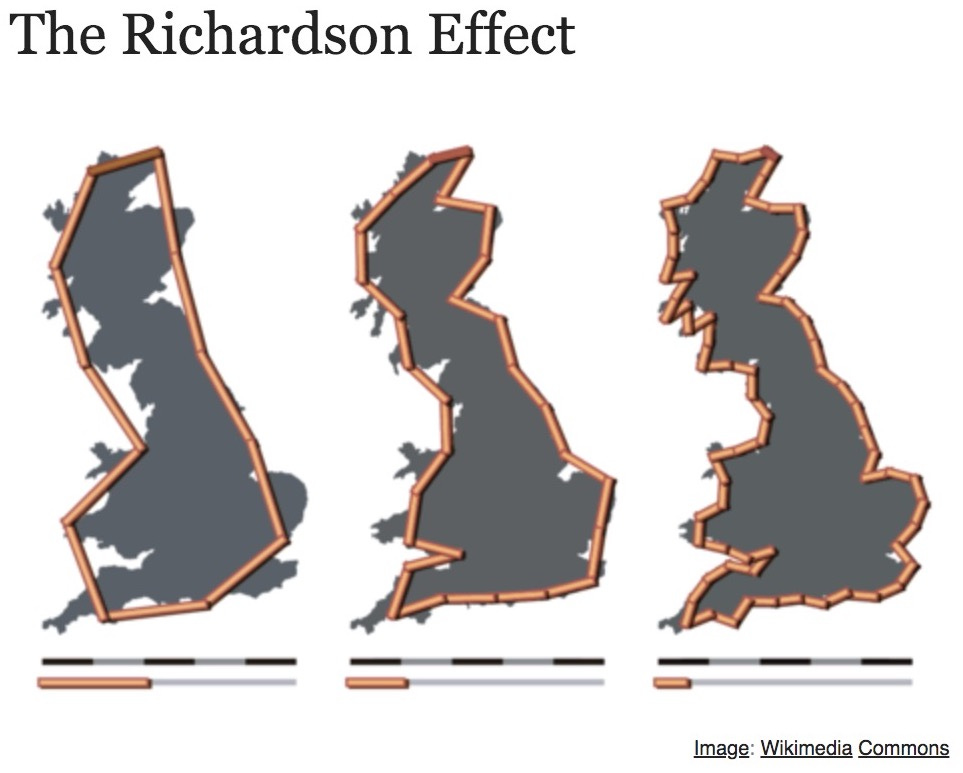What Just Happened #5
And what to worry about next
Welcome. Let’s see what’s going on out there this week. Today is Saturday, February 18, 2023.
NATO chief and former Norwegian Prime Minister Jens Stoltenberg says this time he’ll leave NATO’s top job. He had been set to become governor of Norway’s central bank, Norges Bank, just before Russia declared war on Ukraine, but NATO asked him to stay on. So last March he resigned from the bank job before it began.
The top job went to Ida Wolden Bache, a former deputy governor of the central bank who held the job temporarily. She had been the frontrunner until Stoltenberg said he might like the job.
Despite considerable debate over his candidacy, Stoltenberg ended up controversially winning the post (the Central Bank job) and was due to move back to Oslo when his current term as NATO chief was to expire on September 30.”
Instead he signed on for another year at NATO and this week we learned,
The article, from last Sunday, says
"The mandate of Secretary-General Jens Stoltenberg has been extended three times, and he has served for a total of almost nine years," NATO spokesperson Oana Lungescu said late on Saturday.
"The Secretary-General's term comes to an end in October of this year and he has no intention to seek another extension of his mandate."
The former Prime, Finance & Energy Minister has just about run out of big jobs. With that central bank gig not open again until 2028, you know, knitting isn’t just for women up in Stoltenberg’s part of the world. Men are avid knitters, too. Just a suggestion.
Common Sense and Whiskey subscriptions start at the entirely reasonable price of free. Get yourself a subscription. It only takes a second. Thank you.
Speaking of people changing jobs, it’s been a tough week for Moldova. The tiny country’s government collapsed late week before last and has a new Prime Minister from last Thursday.
Let’s look at why Moldova matters. First some orientation:
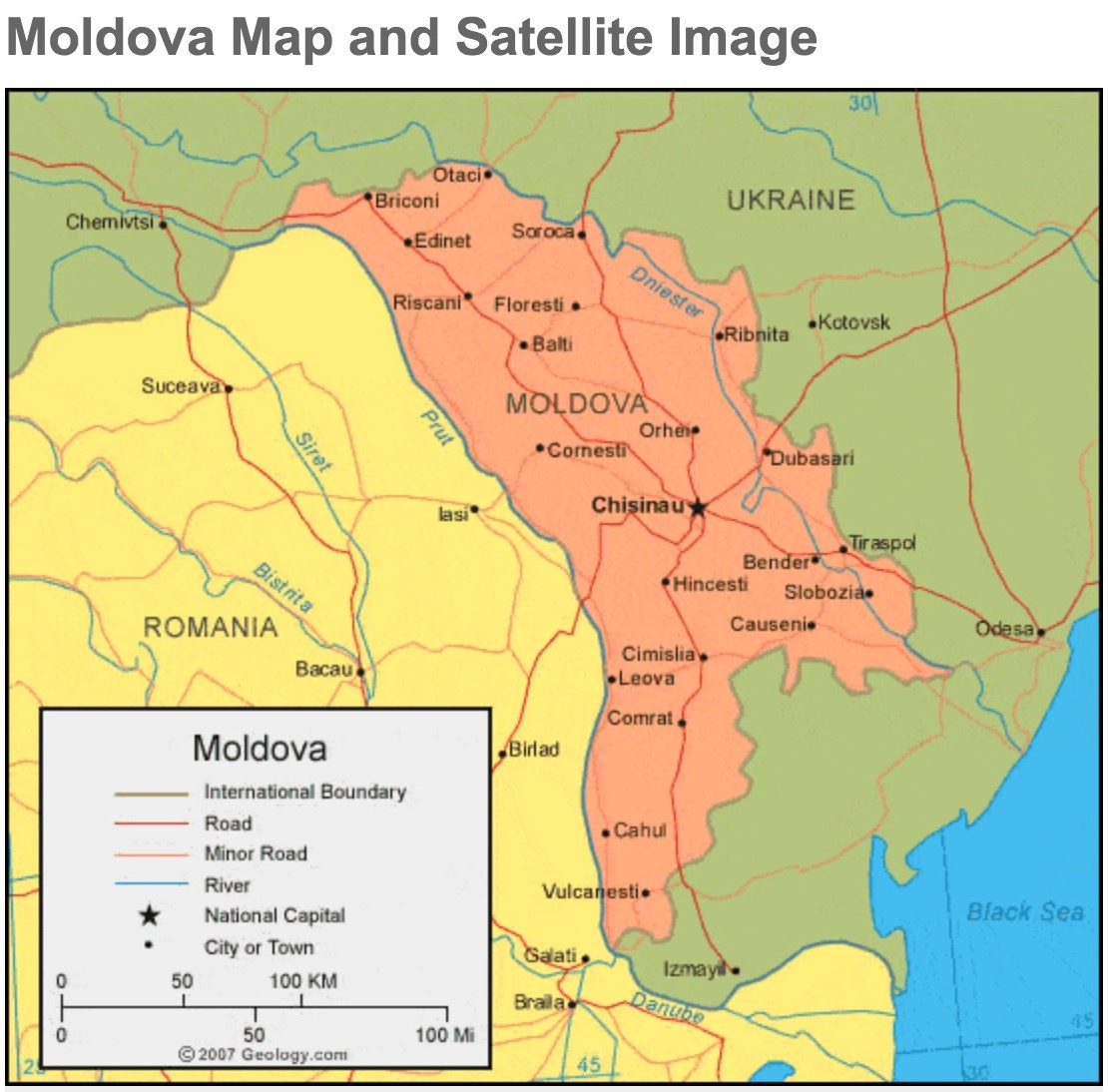
Moldova is a landlocked former Soviet republic between Romania and Ukraine, capital Chisinau. Its population of maybe 2.6 million has absorbed some 400,000 Ukrainians.
Note on the map the Dniester River that runs from the north, south to the Black Sea, in the east of the country. When Moldova declared its independence as the Soviet Union broke up, Russian backed separatists seized the area east of the river and hold it still, using Tiraspol as their capital which, as you can see, is scarcely fifty miles from Chisinau.
The 1300 square mile rebel area, host to Russian troops, is across the Dniester River, so it’s called Transnistria. A large portion of people in Transnistria speak Russian and identify back to the east with Russia. News stories often say Transnistria is home to some 1500 Russian troops, but in fact almost all are locals with Russian passports.
Moldovan Prime Minister Natalia Gavrilita resigned eight days ago, blaming Russia for making her government untenable, especially by manipulating energy prices to turn public opinion against it.
Novaya Gazeta has a long investigative article on Russia’s energy scheme, which they say works like this:
Gazprom supplies Transnistria with gas. Transnistria’s population pays for gas (although it costs 30 times cheaper than in Moldova), the money goes into the budget of the unrecognised republic. But the republic does not pay Gazprom back, the cost of gas is assigned to Moldova — the Moldovan debt to Russia estimated at over $9 billion. In the past, Gazprom used the debt as a reason for energy blackmail of the country: in case of any political conflict, Gazprom threatens to leave Moldova without gas due to the unpaid debt.
It cites this article in Russian as saying Putin noted that Russia "has been supplying free gas to Transnistria for many years.”
Alexander Flenkya, former Moldovan Deputy Prime Minister for Reintegration, says the problem for Russia is that it’s far away, and has to exert its influence through Moldovans. To this end, he says,
There used to be four key positions that the locals could not appoint without Moscow’s agreement: Minister of Defence, Minister of Internal Affairs, Minister of State Security, and Minister of Foreign Affairs. Usually, these posts would be taken up by Russians,” Flenkya says. “Although lately, the situation has changed somewhat, and now there’s only one politician completely controlled by Russia in the republic — Minister of Foreign Affairs Vitaly Ignatyev.
Russia has done this kind of infiltration and agitation in other former Soviet countries frequently enough that it has a name: frozen conflicts. Besides in Transnistria, frozen conflicts exist in Ukraine’s Donbass, Abkhazia and South Ossetia in Georgia, and similarly in Nagorno-Karabakh between Armenia and Azerbaijan.
Russia may not control the Transnistrian ruling clique as thoroughly as it once did but it can still keep things unsettled. Times are hard in Moldova. Inflation is at 30%, the highest in Europe, and the average monthly salary is just MDL 9,900 Moldovan Leu, about $600.
On 9 February the Zelensky government said its intelligence intercepted a Russian plan to destabilize Moldova. The next day the government resigned and there were claims a Russian missile had invaded Moldovan airspace. At a press conference Monday President Maia Sandu warned of a coming coup. She said, among other things:
"The plan for the future period envisages sabotage with the involvement of persons with military training, disguised as civilians, to resort to violence, attack government buildings, and take hostages.
The plan also involves the use of foreigners in committing violent acts. For example, the documents received contain instructions for citizens of Russia, Belarus, Serbia, and Montenegro on how to cross into Moldova."
Part of the problem in Moldova is uncertainty about who a citizen really is. Russia is free about granting passports to Transnistrians, part of a so called passportization policy it also uses to destabilize the Donbass and Georgia. Moldova is a mess in this regard since, not only is it full of Ukrainian refugees, and Transnistrian separatists with Russian citizenship, but also between a quarter and a third of Moldovans have Romanian and thus EU citizenship (and thus citizenship in a NATO country).
Not to be apocalyptic about tiny Moldova, but it’s a volatile mix in a place where a Russia/NATO confrontation is more conceivable than elsewhere. Moldova named a new Prime Minister on Thursday. Dorin Recea was formerly Minister of Internal Affairs and like President Sandu is pro-EU. I’d fancied a discussion about Moldova wresting its independence back. For now let’s just see if incoming Prime Minister Recea can make the government work at all.
•••••
A little bit of a press review on the state of the war this week:
“We are never doing something just by ourselves, but together with others, especially the United States.”
That’s German Kanzler Olaf Scholz, quoted by PBS, and you can’t get much more plain than that. Last weekend the Financial Times ran a piece by Katja Hoyer on German pacifism and its reluctance to arm its neighbors:
“Germany’s collective conviction that armed conflict is inherently futile has been severely tested by the war in Ukraine. Days before Russia launched its invasion on February 24 last year, Annalena Baerbock, Germany’s foreign minister, was still defending her country’s reluctance to help Ukraine defend itself: “Our responsibility after the second world war was that never again from Germany there will be war, and never again there will be genocide.” There it was, modern Germany’s oft repeated raison d’être: never again.
But since Baerbock spoke those words, Germany has not only announced a €100bn boost to its own military but also has sent significant aid and weaponry to Ukraine — most recently, albeit reluctantly, Leopard 2 tanks — something that sends shivers down many German spines.”
•
I liked the steely-eyed look Timothy Garton Ash gave to Ukraine’s prospects in the New York Review of Books. Citing George Orwell, he said we ought to all fight for the right side but remain honestly critical of its shortcomings.
He sees plenty of potential for trouble to come. The next presidential election is due in March next year, and one of Ukraine’s most pernicious problems is the trouble it has had liberating itself from the still extant, lingering “oligarch effect.”
As things are now in Ukraine, “all the main TV channels run just one version of the news 24/7,” watched by 90 percent of those who get their news from TV. Garton Ash says
“Temptation for Zelensky to keep the television monopoly and use central resources in a reelection campaign would be great.”
•
Last week we talked about how NATO’s center of gravity is moving east. The Australian think tank Lowy Institute puts it like this:
The war in Ukraine has accelerated a 15-year trend in Europe that has pushed political authority away from a Franco-German core towards the fringes and the front-line states, away from the north-south axis of Paris and Berlin towards an east-west one now bracketed by the UK and Poland, and away from states that claim historical ownership of the EU and towards states that joined the bloc after 2004.
Paris and Germany meant to be lords of the EU core, true enough, but with the USA as overlord. Events have changed the calculus of the eastern NATO states and Ukraine, who now couldn’t much care who wants to be in charge back at the rear, as long as the guns and money flow, because they are at the front.
Lowy again:
Germany and France still monopolise the levers of power in Europe, but they have lost the authority to use them.
Email readers: If your email provider interrupts this post before the end you can click on "View entire message" to see the whole thing.
•••••
Let’s take a quick look at the Pacific, where the question of China’s expansion of influence has festered for some time.
Some background: A breeze of concern swept from the Pacific outward toward western capitals a year ago when China and the Solomon Islands signed a security agreement. Rumors that something like this was brewing sent US Secretary of State Antony Blinken scrambling off on a slapped-together meeting in Fiji last February with 18 Pacific leaders, most attending online.
Feigning to be first and foremost focused on Pacific island affairs left Blinken forlorn and looking like it, standing alongside the acting Fijian Prime Minister, in Fiji, lamely promising to open a new embassy … in the Solomon Islands. Blinken wanted to be anywhere but Nadi just then, because anywhere else would have been closer to his preoccupation that day, February 12th, 2022, less than two weeks before the Russian invasion of Ukraine.
But the US is right to be concerned about Chinese encroachment, in security matters and otherwise. Luganville, Vanuatu’s second city on the island of Espiritu Santo, has a shiny new, controversial Chinese built port. Almost five years ago, the Sydney Morning Herald fretted that Chinese officials had approached Vanuatu officials about a security arrangement, and how that kind of thing could lead to a Chinese military base far too close to Australian shores.
The Luganville wharf’s stated purpose is to host cruise ships, but it’s big enough to service naval vessels too. A security analyst called the wharf “overkill” for the cruise industry. I checked and I can only find 61 cruise ship arrivals scheduled for 2023 in all of Vanuatu.
Building a port for cruise ships could be good for China even if it really is just for cruise ships. The worry is that China could move on Vanuatu as they did at the Hambantota port in Sri Lanka, what analysts call “debt trap diplomacy.”
The port on Sri Lanka’s southern coast was built with loans from a Chinese state-owned bank and opened in 2010. But when the Sri Lankan government struggled to pay its debt, under a 2018 deal Chinese firms emerged with a 70 per cent stake and 99 year lease.
“What the Chinese tend to do is that they put heavy investment into countries that simply don’t have the means to pay back the debt,” an expert told Australia’s Channel 9. “If China can get a country so deep in debt that it can’t pay back that debt, then they will take something else in return … (like a) port.”
Meanwhile, in the last couple of weeks there has been a flurry of activity across the region by the United States:
Last month Washington signed similar documents with the Marshall Islands and Palau. A statement made clear the agreement was part of “ongoing Compact of Free Association negotiations,” under which “Washington retains responsibility for the defense of the three island nations while providing them with economic assistance.” Meaning American warships may continue to call.
There’s more. The US & PNG spent week before last hammering out a similar access agreement:
Negotiators spent Monday to Friday week before last discussing a defense cooperation agreement which would “improve the capacity of Papua New Guinea's Defence Force and increase stability and security in the region,” the State Department said.
Two weeks ago, the Philippines granted the United States greater access to some of its military bases, and in a moment of swagger, Philippines President Ferdinand Marcos Jr told a domestic military audience earlier today that his country "will not lose an inch" of territory.
So here’s a map of the moment, Chinese influence in red, US influence in blue.
•••••
Türkiye remains under a state of emergency following the earthquake. An FPRI analysis points out that “following the 2016 coup attempt, a state of emergency was imposed across the country for two full years in order for (President Recip Tayyip) Erdoğan to conduct a thoroughgoing purge of the state bureaucracy and education system.”
Erdoğan’s first visit to the earthquake area was to Kahramanmaraş, a stronghold of his AKP Party that voted 67% for the AKP candidate in the 2019 parliamentary elections. By the time of Erdoğan’s arrival, only a single disaster response team had arrived in Antakya, where this Al Jazeera video says 70% of buildings have been destroyed.
Antakya is in Hatay province, which voted 55 percent for the opposition Republican People’s Party (CHP) in the same elections.
With the Turkish economy already in the doldrums, Mr. Erdoğan feels compelled to hand out free money:
“Touring quake-hit areas since Wednesday, Erdoğan announced financial aid of 10,000 Turkish liras ($531) for each affected family and pledged that the government will build new homes for the victims within a year and pay the rents of those unwilling to stay in tents.”
The BBC has a story estimating that up to 75,000 buildings may have collapsed across the entire earthquake area. Opposition CHP party figure Ekrem İmamoğlu, who is Istanbul’s mayor and may be Erdoğan’s opponent in the presidential race, turned up the pressure on TV Wednesday when he “warned that there are 90,000 structures that have a risk of collapsing” in Istanbul alone should a big earthquake hit his city. İmamoğlu has been sentenced to jail for declaring that “those who cancelled the March 31 (2019 Istanbul mayoral) election are fools.”
If İmamoğlu’s conviction stands on appeal it comes with a banishment from holding office. Appeals normally take a year or so to move through the courts. No prediction here, but let’s see if İmamoğlu’s appeal process is expedited. The 2018 appeal of Selahattin Demirtas, a pro-Kurdish Peoples’ Democratic Party leader, took only weeks. Similar treatment of İmamoğlu would be a fair measure of Erdoğan’s pre-election jitters.
•••••
Zimbabwe isn’t as far as it usually is under radar just now because it has an election in July. Philosophical question: do you visit Zimbabwe? In order to visit Victoria Falls, perhaps to see wildlife, do you overlook the country’s authoritarianism, its dismal human rights record, the misery and suffering imposed on millions of people by the successor regime to Robert Mugabe, now headed by Emmerson Mnangagwa?
Zimbabwe is a physically rich land that should be prospering as Africa’s bread basket, supplying the world with corn, wheat, millet, sorghum, cassava.
Whether or not to visit pariah states is a perennial dilemma for travelers, especially when, like in Zimbabwe, tourism is an important source of hard currency for the regime. You must weigh whatever succor the money you spend there gives to the odious ruling clique against how you could give support by spending money directly with poor local folks who can desperately use it.
We visited the capital, Harare, and Victoria Falls in 1995, in Mugabe’s eighth year as president. The "Sunshine City" lived up to its name, with brilliant sun, no humidity, clear, crisp days, and at only 650,000 people, Harare felt manageable, with gracious wide boulevards, a compact center and prim, polite suburbs where property lines were trimmed with hedges.
Robert Mugabe became leader of Zimbabwe in a ceremony on 18 April 1980, as the country was granted independence from the United Kingdom. Neighboring leaders attended. Indira Ghandi attended. Bob Marley sang a song. From there, in what grew to become Mugabe’s 37 year rule, Zimbabweans experienced a steady decline into misery.
American diplomat Herman J. Cohen has written that at first Mugabe did an excellent job of providing basic education to youth, and at the time of our visit in 1995, Mugabe fatigue hadn’t quite set in yet. But Cohen wrote that when he visited Harare in 1998 ordinary people “in hotels, stores and restaurants” were “expressing their fatigue with Mugabe,” and in a bid to turn that around Mugabe tried expropriating land from white farmers. From there the economy went into terminal decline.
By 2008 inflation reached 79.6 billion percent. A loaf of bread cost as much as a new car ten years before. An egg cost 50 billion Zimbabwe dollars. Prices doubled every 25 hours, ranking second in history behind post-war Hungary.
When Zimbabwe phased out its currency in favor of the U.S. dollar the rate was one US dollar to 35 quadrillion Zimbabwe dollars. But we visited well before than. In 1995, the year of the O.J. Simpson trial, Harare reminded me most of all of, say, a suburb of St. Louis.
In an article (behind paywall) titled They danced when Mugabe fell. Now life in Zimbabwe is worse than ever, Christina Lamb writes that things haven’t gotten much better.
Roads are like war zones, there are 20-hour power cuts, and three in four are jobless but any opposition is met with extreme violence.
Still, she says,
This year tens of thousands of British tourists will visit the country to marvel at the Victoria Falls, see elephants and rhinos in its national parks and watch hippos wallow on the Zambezi.”
Do you go or not? Viewing wildlife in its natural habitat is a rare and vanishing privilege. Victoria Falls is one of the world’s most compelling sights. If you have the opportunity, I’m not one to wag a finger and preach that you should stay away. This question is one of the toughest in travel. In the end it’s personal.
Meanwhile, East African leaders met in Burundi to try to tamp down the conflict in eastern DRC. Things got tense between Congolese President Tshisekedi and Maj. Gen. Jeff Nyagah, commander of the East African Community Regional Force that has been trying to control the fighting. “Do not favor the (rebel group) M23. It would be a shame for the population to turn on you,” Tshisekedi threatened the general.
All this is challenge #1 for the East African Community and Kenya’s newly installed President Ruto.
•••••
Two charts, no comment:
Sources, Lazo Letters, top, and Noahpinion, bottom.
•••••
I’m the last person to ask, but I’d bet it’s a brilliant time to be a young economist. The standard model would tell you that inflation must rise as the unemployment rate falls because employers competing for a dwindling pool of workers will bid up wages and, eventually, prices will follow. Since the pandemic though, nothing much is really behaving the way it should. And when it’s time to rewrite the standard models, that’s an exciting time to be alive.
We might ask Alain Aspect, John F. Clauser and Anton Zeilinger about rewriting standard models. They won the Nobel Prize for Physics last October “for experiments with entangled photons, establishing the violation of Bell inequalities and pioneering quantum information science.” What that means, I think, is they proved Einstein wrong about quantum entanglement. It’s gotta be an exciting time to be a quantum physicist when you’re rewriting opinions held by Einstein.
The Economist’s Babbage podcast had an episode that may move you a little closer to knowing what quantum entanglement even is, thanks to its interview with one of the three prize winners, Anton Zeilinger, who sounds like an agreeable fellow. It’s not really a thing you can have on in the background, but if you can devote your attention to it (like I listen to podcasts during my daily exercise routine), put it on your list:
••••
Here is an enjoyable, um, thing that squishy lefties like me might not naturally come across. It’s called “P. N. Gwynne’s THE COMPENDIUM, The world’s greatest (and as far as the editor knows only) collection of idiosyncratic, off-beat, largely non-leftist (and therefore lesser-known) quotations.”
Equal time. For amusement purposes only. You may even enjoy some of it. A couple of less offensive examples:
“The Dalai Lama is the hardest-working man in spirituality.” – SHARON STONE
"We must believe in luck. For how else can we explain the success of those we don't like?" -- JEAN COCTEAU
•••••
Finally, puzzle on this one. The more you measure, the longer borders get. They call it the Richardson Effect:
•••••
That’s it for today. Hope you enjoyed it. In Tuesday’s travel column we’ll head into the highlands of Papua New Guinea. Thanks for reading. While you’re here, why not sign up for a subscription? Prices start at the very attractive rate of free.


